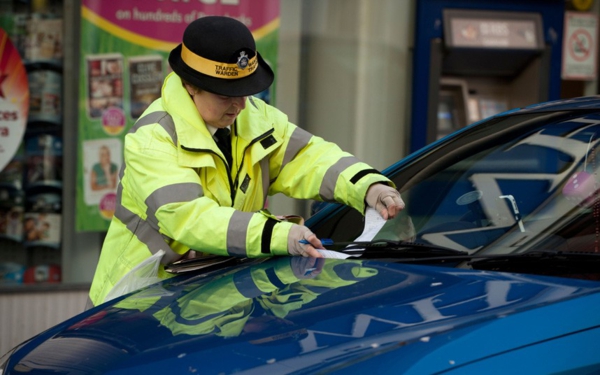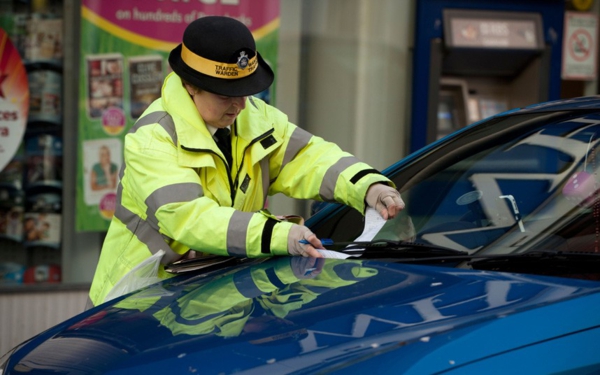It can be sudden surprise to find a parking fine coming through your letterbox, especially if you weren’t aware of any wrongdoing. The first thing to do is not to panic – many people receive fines in error, or without just cause, and even if you were in the wrong you can often appeal against the fine. Here are some steps to take if you get that unexpected fine through your door.

Establish where the fine came from, and whether it was fairly given to you
If the fine has been issued by a company for parking on private property (supermarkets, hospitals, retail parks etc.), then don’t be tempted to pay the fine straight away. Whilst the letter you receive may be scary and full of jargon, often private parking tickets are illegal or issued without just cause.
If you’re not sure whether the ticket is from a private company, be aware that if the fine is from the police or the council, it will clearly state this.
Combatting private fines
There are many ways to approach privately issued fines. To reiterate, do not simply pay up front if you have any reason to doubt the fine. The company has no right to issue you a fine; they are simply sending you an invoice for a “breach of contract.” Even if you parked in a legitimate company’s car park, many big retailers and establishments will hire third party companies who aren’t so legitimate to manage their car parks.
In many of these cases, you can simply ignore the ticket and see what happens. Often companies will not follow through with taking you to court, especially if there is no real justification for the fine. However, if you want to make sure that the fine goes away, check whether the company is a BPA (British Parking Association) approved operator. If so, you can go through the BPA’s appeals process to stop the fine.
If the company is not BPA-approved then simply write to the company explaining that you aren’t going to pay the fine and see what the response is. If it was issued by a company representing a large retailer then it’s worth getting in touch with their head office, particularly if the fine is unjustified or the company is behaving inappropriately. They may be unaware that the ticket issuer is operating in an unacceptable manner and could cancel the ticket themselves.
Police and council issued fines: know where you stand
If you’ve received the fine from the police or the council, then consider whether it’s fair or not. If you believe the ticket has been unfairly administered then gather any evidence to support this. Was a sign advising of parking restrictions missing or obscured? Are bay markings or yellow lines clearly marked? Is the parking meter working properly? Be sure to take any photos of this as soon as possible.
Budgeting and emergency finances
As we know its Murphy’s law that a parking fine will always come when funds are low or perhaps towards the end of the month when all expenses have been paid. Therefore services like microfinance loans mean you have access to funds quickly when you need them most. Ensuring that you don’t request for loans outside your needs means that a microfinance loan can be the most efficient and effective way of paying off a parking fine.
The ways to appeal are clearly laid out on the ticket you receive so be sure to put your evidence forward in an easy to understand format and send it back to the council or police within their stated time limits.
Bear in mind that if you did illegally park, you can let the council know of any mitigating circumstances, such as receiving the ticket when broken down, tending to an emergency, taking a patient to hospital, or you were on holiday and the parking restrictions changed while you were away. You can also appeal if you receive the ticket within 3 minutes of a pay and display ticket expiring.
If you genuinely were parking illegally and have to pay the fine
Usually the council or police will give you a discount on the fine if you pay up within 14 or 21 days, depending on the circumstances, so ensure that you pay within this time limit.
If you cannot afford to pay then it’s worth simply writing to the council explaining your financial situation and providing any evidence to support this (bank statements etc.). This doesn’t always work but occasionally the council will let you off, especially if this is a first offense.
If this doesn’t work then consider alternative payment options. Asking your employer for an advance on your pay could be a solution, or taking out a credit card with 0% interest can buy you some time. If you have bad credit, then you can consider a microfinance loan if you know you can pay it back in time. Whatever the circumstance, ensure that it’s within the discountable time frame, so you don’t end up with a huge payment looming over you.
Louise Jenkins writes about microfinance, for more information visit https://www.communitypayday.com/
How To Deal With Unexpected Parking Fines

